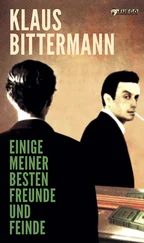“I once had a sweetheart, but now I have none.
He’s gone and he’s left me to weep and to moan.
He’s gone and he’s left me, but contented I’ll be,
For I’ll get another one, better than he!”
I was excited because Beryl was coming, a visitor, all the way from California. Also because I had gone to town in late June to write the Entrance Examinations, and was hoping to hear soon that I had passed with honors. Everybody who had finished Grade 8 in the country schools had to go into town to write those examinations. I loved that — the rustling sheets of foolscap, the important silence, the big stone high-school building, all the old initials carved in the desks, darkened with varnish. The first burst of summer outside, the green and yellow light, the townlike chestnut trees, and honeysuckle. And all it was was this same town, where I have lived now more than half my life. I wondered at it. And at myself, drawing maps with ease and solving problems, knowing quantities of answers. I thought I was so clever. But I wasn’t clever enough to understand the simplest thing. I didn’t even understand that examinations made no difference in my case. I wouldn’t be going to high school. How could I? That was before there were school buses; you had to board in town. My parents didn’t have the money. They operated on very little cash, as many farmers did then. The payments from the cheese factory were about all that came in regularly. And they didn’t think of my life going in that direction, the high-school direction. They thought that I would stay at home and help my mother, maybe hire out to help women in the neighborhood who were sick or having a baby. Until such time as I got married. That was what they were waiting to tell me when I got the results of the examinations.
You would think my mother might have a different idea, since she had been a schoolteacher herself. But she said God didn’t care. God isn’t interested in what kind of job or what kind of education anybody has, she told me. He doesn’t care two hoots about that, and it’s what He cares about that matters.
This was the first time I understood how God could become a real opponent, not just some kind of nuisance or large decoration.
MY MOTHER’S NAME as a child was Marietta. That continued to be her name, of course, but until Beryl came I never heard her called by it. My father always said Mother. I had a childish notion — I knew it was childish — that Mother suited my mother better than it did other mothers. Mother, not Mama. When I was away from her, I could not think what my mother’s face was like, and this frightened me. Sitting in school, just over a hill from home, I would try to picture my mother’s face. Sometimes I thought that if I couldn’t do it, that might mean my mother was dead. But I had a sense of her all the time, and would be reminded of her by the most unlikely things — an upright piano, or a tall white loaf of bread. That’s ridiculous, but true.
Marietta, in my mind, was separate, not swallowed up in my mother’s grown-up body. Marietta was still running around loose up in her town of Ramsay, on the Ottawa River. In that town, the streets were full of horses and puddles, and darkened by men who came in from the bush on weekends. Loggers. There were eleven hotels on the main street, where the loggers stayed, and drank.
The house Marietta lived in was halfway up a steep street climbing from the river. It was a double house, with two bay windows in front, and a wooden trellis that separated the two front porches. In the other half of the house lived the Sutcliffes, the people Marietta was to board with after her mother died and her father left town. Mr. Sutcliffe was an Englishman, a telegraph operator. His wife was German. She always made coffee instead of tea. She made strudel. The dough for the strudel hung down over the edges of the table like a fine cloth. It sometimes looked to Marietta like a skin.
Mrs. Sutcliffe was the one who talked Marietta’s mother out of hanging herself.
Marietta was home from school that day, because it was Saturday. She woke up late and heard the silence in the house. She was always scared of that — a silent house — and as soon as she opened the door after school she would call, “Mama! Mama!” Often her mother wouldn’t answer. But she would be there. Marietta would hear with relief the rattle of the stove grate or the steady slap of the iron.
That morning, she didn’t hear anything. She came downstairs, and got herself a slice of bread and butter and molasses, folded over. She opened the cellar door and called. She went into the front room and peered out the window, through the bridal fern. She saw her little sister, Beryl, and some other neighborhood children rolling down the bit of grassy terrace to the sidewalk, picking themselves up and scrambling to the top and rolling down again.
“Mama?” called Marietta. She walked through the house to the back yard. It was late spring, the day was cloudy and mild. In the sprouting vegetable gardens, the earth was damp, and the leaves on the trees seemed suddenly full-sized, letting down drops of water left over from the rain of the night before.
“Mama?” calls Marietta under the trees, under the clothesline.
At the end of the yard is a small barn, where they keep firewood, and some tools and old furniture. A chair, a straight-backed wooden chair, can be seen through the open doorway. On the chair, Marietta sees her mother’s feet, her mother’s black laced shoes. Then the long, printed cotton summer work dress, the apron, the rolled-up sleeves. Her mother’s shiny-looking white arms, and neck, and face.
Her mother stood on the chair and didn’t answer. She didn’t look at Marietta, but smiled and tapped her foot, as if to say, “Here I am, then. What are you going to do about it?” Something looked wrong about her, beyond the fact that she was standing on a chair and smiling in this queer, tight way. Standing on an old chair with back rungs missing, which she had pulled out to the middle of the barn floor, where it teetered on the bumpy earth. There was a shadow on her neck.
The shadow was a rope, a noose on the end of a rope that hung down from a beam overhead.
“Mama?” says Marietta, in a fainter voice. “Mama. Come down, please.” Her voice is faint because she fears that any yell or cry might jolt her mother into movement, cause her to step off the chair and throw her weight on the rope. But even if Marietta wanted to yell she couldn’t. Nothing but this pitiful thread of a voice is left to her — just as in a dream when a beast or a machine is bearing down on you.
“Go and get your father.”
That was what her mother told her to do, and Marietta obeyed. With terror in her legs, she ran. In her nightgown, in the middle of a Saturday morning, she ran. She ran past Beryl and the other children, still tumbling down the slope. She ran along the sidewalk, which was at that time a boardwalk, then on the unpaved street, full of last night’s puddles. The street crossed the railway tracks. At the foot of the hill, it intersected the main street of the town. Between the main street and the river were some warehouses and the buildings of small manufacturers. That was where Marietta’s father had his carriage works. Wagons, buggies, sleds were made there. In fact, Marietta’s father had invented a new sort of sled to carry logs in the bush. It had been patented. He was just getting started in Ramsay. (Later on, in the States, he made money. A man fond of hotel bars, barbershops, harness races, women, but not afraid of work — give him credit.)
Marietta did not find him at work that day. The office was empty. She ran out into the yard where the men were working. She stumbled in the fresh sawdust. The men laughed and shook their heads at her. No. Not here. Not a-here right now. No. Why don’t you try up-street? Wait. Wait a minute. Hadn’t you better get some clothes on first?
Читать дальше












